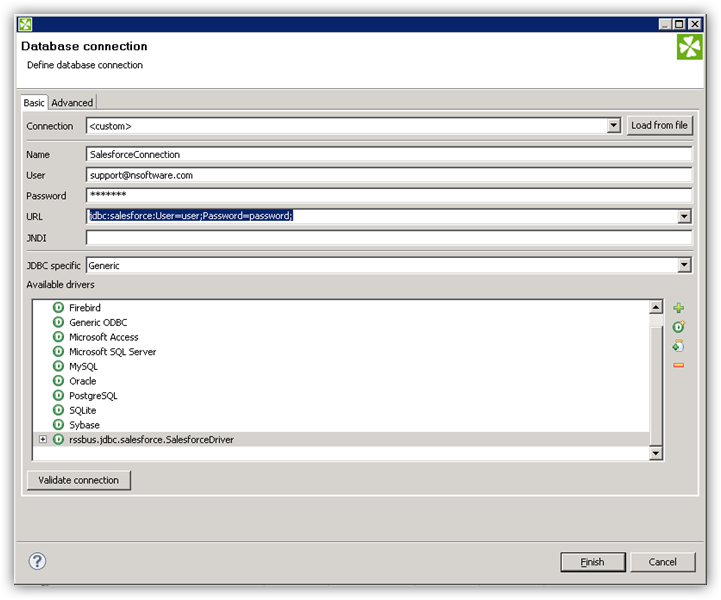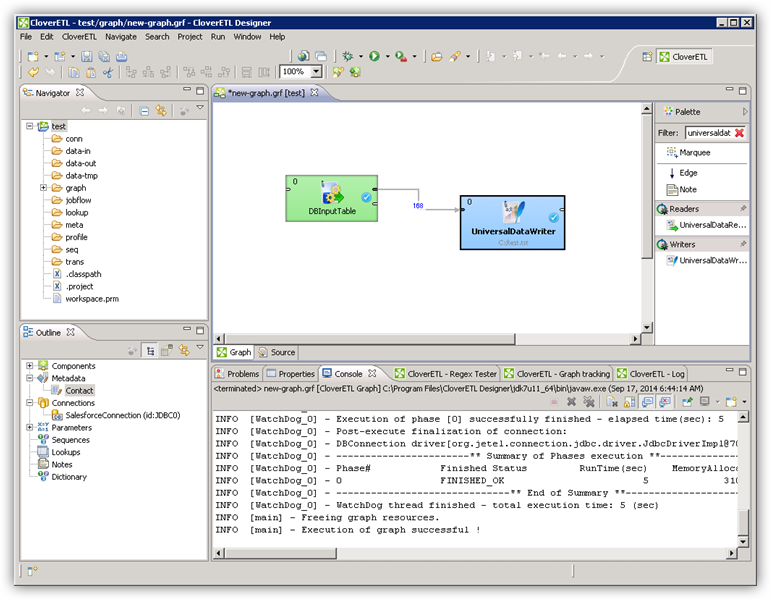Discover how a bimodal integration strategy can address the major data management challenges facing your organization today.
Get the Report →Connect to Microsoft Planner Data in CloverDX (formerly CloverETL)
Transfer Microsoft Planner data using the visual workflow in the CloverDX data integration tool.
The CData JDBC Driver for Microsoft Planner enables you to use the data transformation components in CloverDX (formerly CloverETL) to work with Microsoft Planner as sources and destinations. In this article, you will use the JDBC Driver for Microsoft Planner to set up a simple transfer into a flat file. The CData JDBC Driver for Microsoft Planner enables you to use the data transformation components in CloverDX (formerly CloverETL) to work with Microsoft Planner as sources and destinations. In this article, you will use the JDBC Driver for Microsoft Planner to set up a simple transfer into a flat file.
Connect to Microsoft Planner as a JDBC Data Source
- Create the connection to Microsoft Planner data. In a new CloverDX graph, right-click the Connections node in the Outline pane and click Connections -> Create Connection. The Database Connection wizard is displayed.
- Click the plus icon to load a driver from a JAR. Browse to the lib subfolder of the installation directory and select the cdata.jdbc.microsoftplanner.jar file.
- Enter the JDBC URL.
You can connect without setting any connection properties for your user credentials. Below are the minimum connection properties required to connect.
- InitiateOAuth: Set this to GETANDREFRESH. You can use InitiateOAuth to avoid repeating the OAuth exchange and manually setting the OAuthAccessToken.
- Tenant (optional): Set this if you wish to authenticate to a different tenant than your default. This is required to work with an organization not on your default Tenant.
When you connect the Driver opens the MS Planner OAuth endpoint in your default browser. Log in and grant permissions to the Driver. The Driver then completes the OAuth process.
- Extracts the access token from the callback URL and authenticates requests.
- Obtains a new access token when the old one expires.
- Saves OAuth values in OAuthSettingsLocation to be persisted across connections.
Built-in Connection String Designer
For assistance in constructing the JDBC URL, use the connection string designer built into the Microsoft Planner JDBC Driver. Either double-click the JAR file or execute the jar file from the command-line.
java -jar cdata.jdbc.microsoftplanner.jarFill in the connection properties and copy the connection string to the clipboard.
![Using the built-in connection string designer to generate a JDBC URL (Salesforce is shown.)]()
A typical JDBC URL is below:
jdbc:microsoftplanner:OAuthClientId=MyApplicationId;OAuthClientSecret=MySecretKey;CallbackURL=http://localhost:33333;InitiateOAuth=GETANDREFRESH

Query Microsoft Planner Data with the DBInputTable Component
- Drag a DBInputTable from the Readers selection of the Palette onto the job flow and double-click it to open the configuration editor.
- In the DB connection property, select the Microsoft Planner JDBC data source from the drop-down menu.
- Enter the SQL query. For example:
SELECT TaskId, startDateTime FROM Tasks WHERE TaskId = 'BCrvyMoiLEafem-3RxIESmUAHbLK'
Write the Output of the Query to a UniversalDataWriter
- Drag a UniversalDataWriter from the Writers selection onto the jobflow.
- Double-click the UniversalDataWriter to open the configuration editor and add a file URL.
- Right-click the DBInputTable and then click Extract Metadata.
- Connect the output port of the DBInputTable to the UniversalDataWriter.
- In the resulting Select Metadata menu for the UniversalDataWriter, choose the Tasks table. (You can also open this menu by right-clicking the input port for the UniversalDataWriter.)
- Click Run to write to the file.








